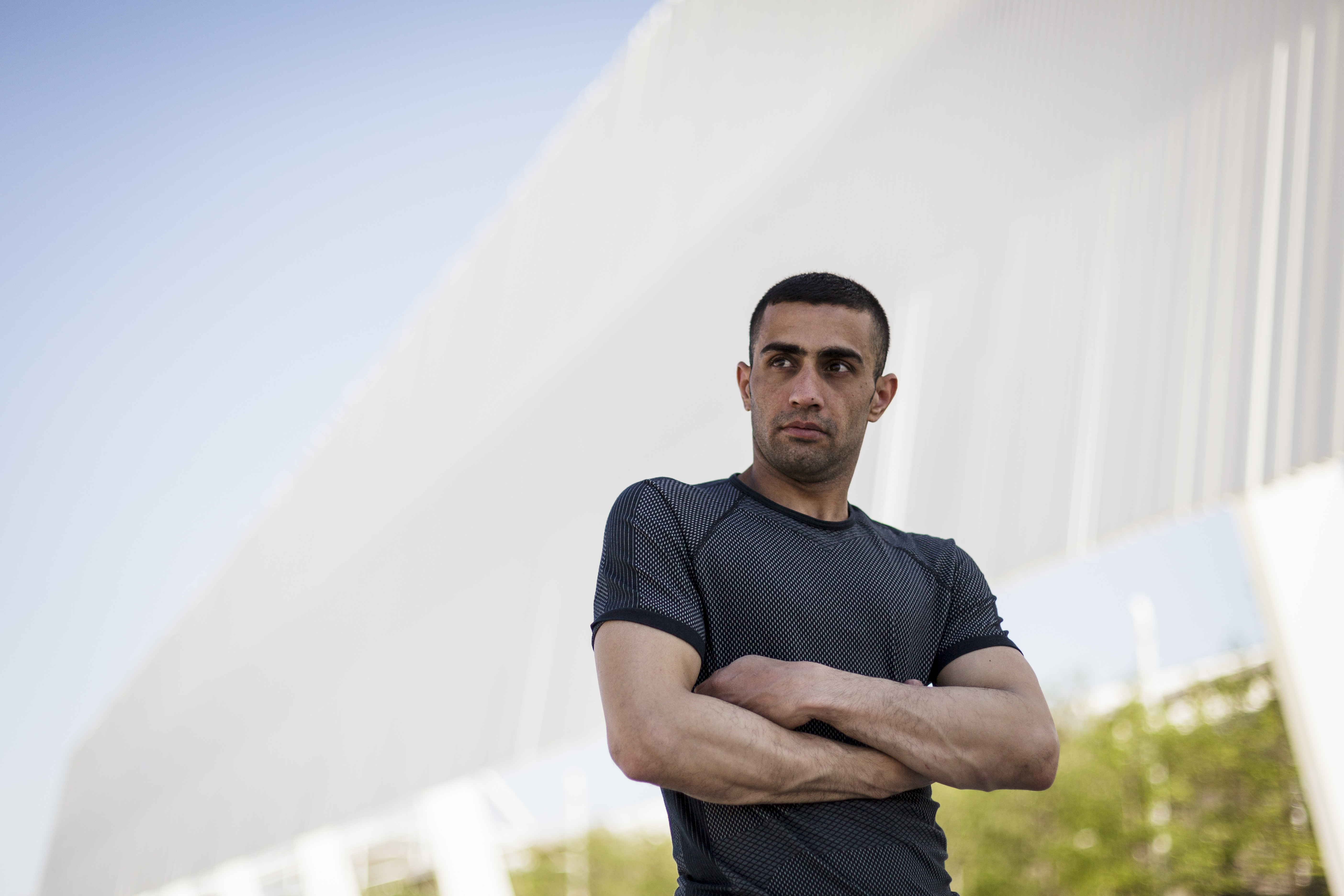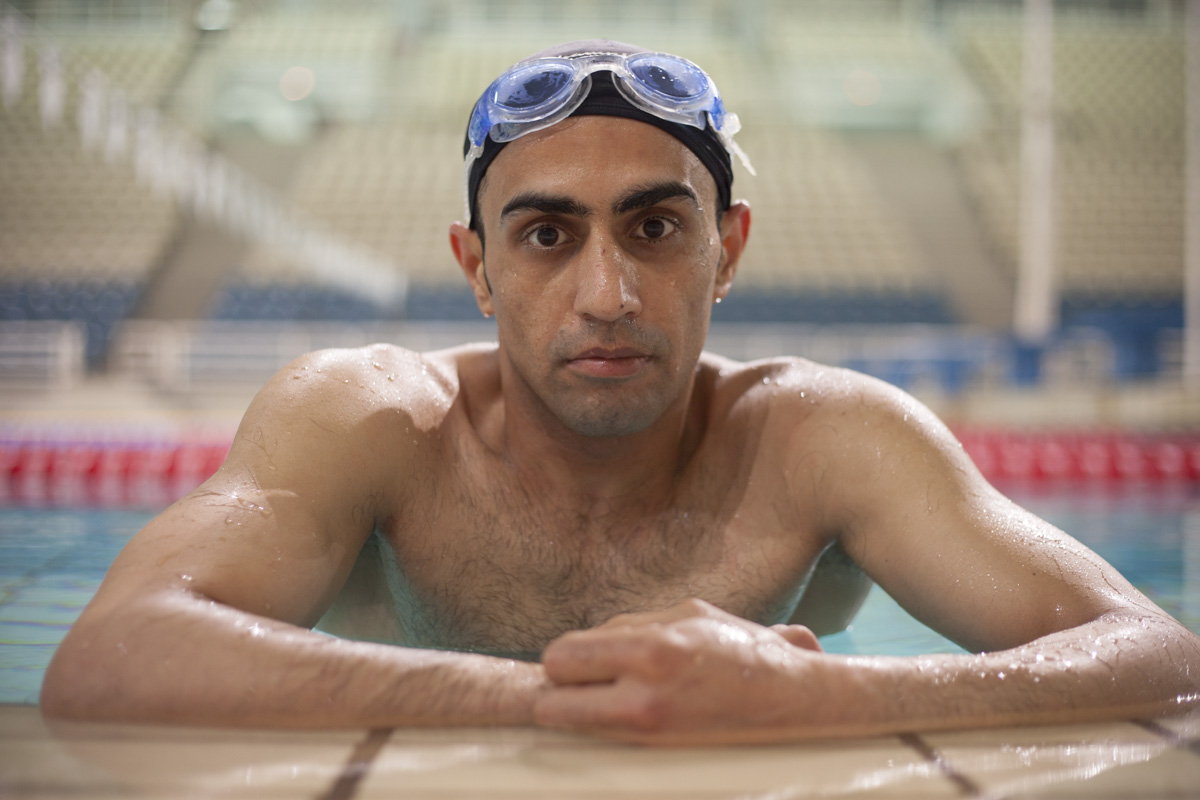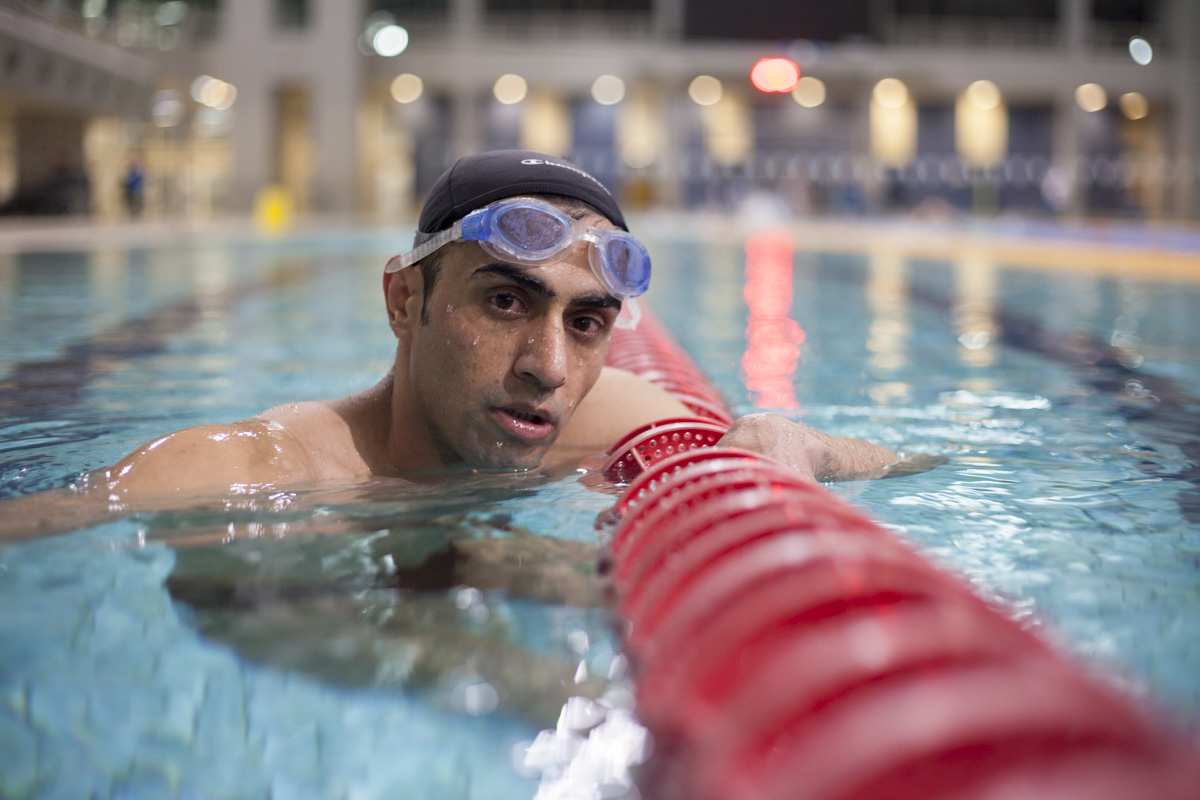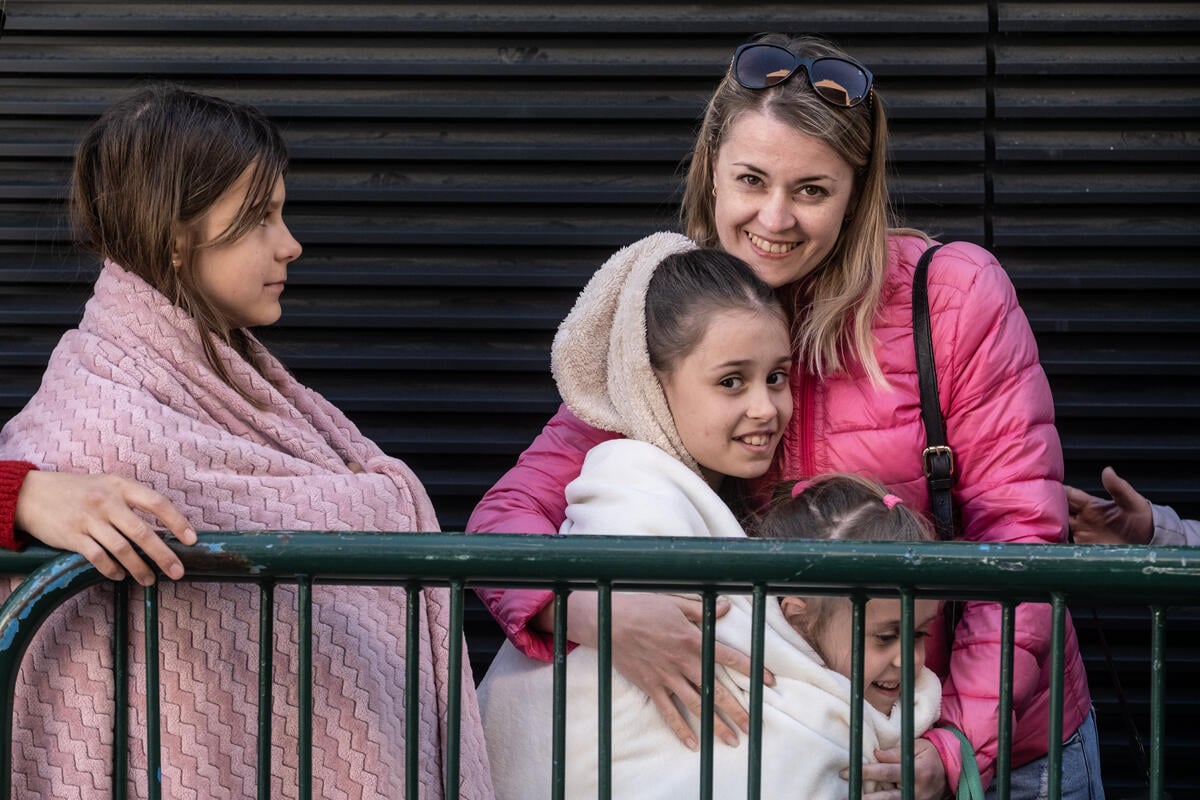Bearing the Olympic torch

Bearing the Olympic torch
Ibrahim Al-Hussein crouches on the starting block, gazing into the pool before him. Everything else melts away: the war in Syria he escaped three years ago, the painful memories of loved ones left behind, the 2012 bombing that left him without part of his right leg. In this moment, it is just about him and the water.
He pushes off and dives forward.
On 26 April, Ibrahim will carry the Olympic flame in Athens as part of the torch relay for the 2016 Games in Rio de Janeiro. The symbolic gesture is meant to show solidarity with the world’s refugees at a time when millions are fleeing war and persecution worldwide.
It is an immense privilege for the 27-year-old athlete, who once dreamed of competing in the Olympics and whose athletic career was interrupted by the war and his injury.
“It is an honor,” Ibrahim says of bearing the Olympic flame. “Imagine achieving one of your biggest dreams. Imagine that your dream of more than 20 years is becoming a reality.”
Ibrahim arrived on the Greek island of Samos in 2014, after crossing the Aegean Sea in a rubber dinghy. Athens has become his new home, the place where he rebuilt his life and identity as an athlete. He walks with a prosthetic leg that a private doctor arranged for him to receive for free.
Ibrahim commits himself to a rigorous sports training schedule. Three days per week, he swims with ALMA, a Greek non-profit organization for athletes with disabilities. His training is held in the former 2004 Olympic sport complex in Athens. He is also part of a wheelchair basketball team in Maroussi, an Athens suburb, that meets five times per week and travels across the country for games.
Ibrahim does all this despite working a 10-hour overnight shift at a cafe.
“It’s not just a game for me,” Ibrahim says of his training schedule. “It’s my life.”
Growing up in Deir ez-Zor, Syria, Ibrahim’s life revolved around sports: swimming, basketball and judo. His father, a swim coach, instilled a love of the water in Ibrahim and his 13 siblings. Several of the children swam competitively from age five, collectively bringing home dozens of medals from local and national competitions.
The family lived on the banks of the Euphrates River. The waterway often served as Ibrahim’s pool, the famed Deir ez-Zor suspension bridge as his diving board.
“I used to climb to the top, dive into the water and swim in the river,” Ibrahim says.
Ibrahim kept swimming competitively into adulthood, even as he worked full-time as an electrician. Then the war began in 2011. Fighters destroyed his beloved bridge. One day, Ibrahim rushed outside to help a friend who had been severely injured, only to be hit by a bomb himself. His right leg was amputated from the mid-calf downward. He fled the next year to Turkey, where he began recovering and teaching himself to walk again.
Speaking of the war, his accident and recovery is difficult. In his small apartment in central Athens, which he rents by himself, Ibrahim keeps no photos or mementos from Syria. The memories are too painful. Nor does he speak of his family members back home; he has lost contact with many of them.
“My eyes only look forward,” Ibrahim says. “I can’t think of the past. If I remember all those things behind me, it will slow me down.”
Within a few months of arriving in Greece, Ibrahim sought help from one of UNHCR’s implementing partners, the Greek Council for Refugees, an NGO that provides legal and social support to people in need of international protection. He had been granted asylum with the help of GCR’s attorney, Katerina Komita. “He never said, ‘I used to be a good athlete’,” Komita says of her client. “He’d say, ‘I am a good athlete’.” Meanwhile, GCR’s social worker, Georgia “Gogo” Chiou, helped Ibrahim find housing and connected him to local sports leagues for athletes with disabilities.
To enter the pool, Ibrahim removes his prosthetic leg and hops to the starting block on his other foot. His swim coach, Eleni Kokkinou, remembers the day last October when Ibrahim swam again for the first time in five years.
“I was in the pool with him, helping him try to balance his body in the water again,” Kokkinou says. Without part of his leg, Ibrahim’s flutter-kick, which propels the body forward, was not as strong as it once was. By his second session, however, Ibrahim had regained his confidence in the water.
“I saw a strong athlete, nothing more,” Kokkinou says. “All that’s on his mind is, ‘training, training, training.’ His target was to catch up to his personal best time in the 50-metre freestyle.”
Ibrahim now swims the 50-metre freestyle in about 28 seconds, less than 3 seconds short of his timing before he lost part of his leg. In late June, he will compete in the Panhellenic games for swimmers with disabilities. He stands a good chance of coming first in his category and breaking a competition record, Kokkinou says.
“Sport can heal many wounds.”
Ibrahim was selected to carry the Olympic torch following an announcement by Jacques Rogge, honorary president of the International Olympic Committee, that a refugee would carry it this year on behalf of refugees worldwide.
“Sport can heal many wounds,” said Rogge, who is also the UN Secretary-General’s Special Envoy for Youth Refugees and Sport. “Sport can bring them hope, can help to forge their ideas and to integrate in society. Ultimately it brings them hope and dreams.”
“Sport is not the solution,” he added. “But it can make a great contribution.”
In many ways, sports saved Ibrahim’s life, giving him purpose when he found himself alone as a refugee in Greece.
“I am carrying the flame for myself, but also for Syrians, for refugees everywhere, for Greece, for sports, for my swimming and basketball teams,” Ibrahim says. “My goal is to never give up. But to go on, to always go forward. And that I can achieve through sports.”
The flame was lit on 21 April in a ceremony at Olympia, the site of the ancient Olympic Games. Ibrahim will run with the flame through Eleonas, a temporary accommodation site in Athens for some 1,500 refugees.
More than 1 million refugees and migrants came to Europe in 2015, according to UNHCR data, and another 180,000 thus far in 2016. The majority passed have through Greece. But Greece is rarely their destination, due to a six-year-old financial crisis that has made it difficult even for citizens to find jobs.
“He’s been an athlete his whole life. Now, he’s back on track.”
Ibrahim says he decided to stay in Greece after making friends with Greeks and because the Greek way of life felt so familiar.
“I am more than comfortable here,” he says. “I love the Greek people. They are very similar to our people. They say, ‘Good morning, good afternoon, how are you?’ the same way we do in Syria.”
His friends, colleagues and sports coaches say he has shown incredible strength and perseverance.
“He has not let anything stop him – not the war, not losing his leg,” Kokkinou says. “He’s been an athlete his whole life. Now, he’s back on track.”





















